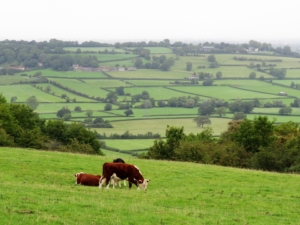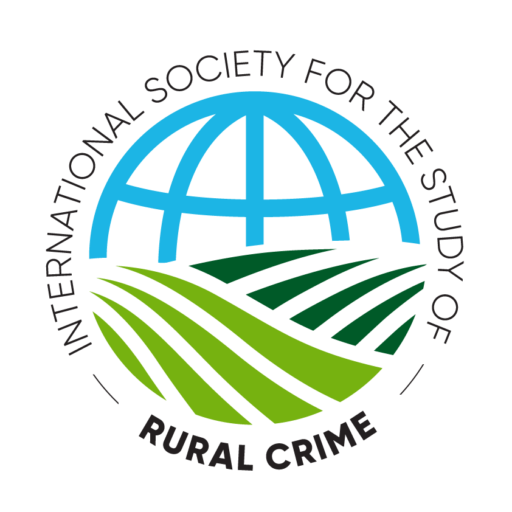ISSRC Blog
This blog provides an opportunity for pithy observations or reflections on topical rural crime news and developments, a summary of research, promotion of publications, advertisements for upcoming events… and more! If you would like to contribute, email a submission of no more than 500 words to admin@issrc.net
“Horizon Scanning Rural Crime in England”
Dr Kreseda Smith and Dr Richard Byrne are members of the Rural Security Research Group at Harper Adams University – Kreseda is also a member of the Executive of ISSRC.
Their latest research paper, “Horizon Scanning Rural Crime in England”, has been published in the Crime Prevention and Community Safety journal. The full-text view-only version of the paper is provided online by Springer as part of their commitment to content sharing.
In the article, Kreseda and Richard observe that rural crime scholarship emanating for the United Kingdom is scant, particularly when compared with the volume of research being produced in United States and Australian contexts.
The paper considers emerging rural crime threats in England and ‘horizon scanning’ as a methodology to aid practitioners both in the United Kingdom and internationally.
The emerging crimes considered in the article are:
- Poaching and hare coursing
- Agrochemical theft and counterfeiting
- Theft of commercial solar panels
- Heritage crime and illegal off‑roading
- Cybercrime and drones
- Modern slavery
Farm crime victimisation reporting
Any notion that crime is an urban phenomenon and that beyond the city-scape lies a crime-free rural idyll can be dismissed once and for all. Equipment, livestock and anything else of value on farms continue to be magnets for opportunistic and organised criminals alike.
Farms are  vulnerable to theft because of unique socio-demographic factors such as:
vulnerable to theft because of unique socio-demographic factors such as:
- Remoteness and distance between farms
- Access to the property
- Improved transport infrastructure
- Changing / unstable populations
- Relaxed attitudes to security
- Perpetrators are becoming more organised
- Has a crime been committed/evidence
And there are a number of quite specific rural issues
- A ‘she’ll be right’ rural mentality
- Irregular livestock counts
- Tractors which are keyed alike
Keys left in ignitions of unlocked vehicles and machines - Sheds/out-buildings left unlocked
- Machinery left near roadsides out of sight of house
- Informal “vigilantism”
- Non-reporting – the ‘dark figure of crime’
Non-reporting
Let’s consider the last one: non-reporting of farm crime is a significant issue because it affects resourcing decisions and police practice. If the reality of farm crime is not known, then appropriate attention cannot be paid at either local or state-wide levels. It also means that the weight of the law won’t be applied to those who engage in criminality – after all, investigations can only occur after reports are made.
Reasons offered for not reporting farm crime are many and varied, and can be divided into three key, broad categories of reasons: institutional; evidence and community.
 Institutional:
Institutional:
- belief that police not able to do anything
- perception that police do not have agricultural knowledge
- worry that police won’t take it seriously
- hassles of the legal process
Evidence:
- feeling that the crime not serious enough to report
- unable to prove ownership of stolen property
- not sure a crime has occurred
- no evidence
- too much time had passed
Community:
- offender was known / living in a small community
- fear of revenge
- farmer solved themselves
- did not want the media to get hold of the story
This is an international problem: in Victoria, Australia, the United Kingdom and elsewhere.
ASSA Rural Crime and Communities Workshop
About the workshop
The Academy of the Social Sciences in Australia (ASSA) through the ASSA Workshop Program 2018-19 sponsored the delivery of a multi-disciplinary workshop entitled Understanding Rural Crime and Rural; Communities: Theory, Policy and Practice.
The Workshop was held on the Gippsland Campus of Federation University Australia on Thursday 7 and Friday 8 February 2019. It was convened by Dr Alistair Harkness (Federation University), Dr Naomi Smith (Federation University), Dr Bec Strating (Latrobe University), and Prof Rob White FASSA (University of Tasmania).
21 participants were involved in the Workshop across the two days, from 12 different universities, and from four Australian states. The Workshop was attended by world-leading rural criminologist Emeritus Professor Joseph F. Donnermeyer from Ohio State University.
Workshop themes
With an overarching focus on space and place, the workshop explored notions of ‘place’ and ‘context’ in each session, assessing fixed geographic locations, online (and thus borderless) spaces, and broader notions of rurality. The diversity of scholarship represented at the workshop highlights the growing inter-disciplinarity of rural criminology scholarship.
Key themes that emerged from the workshop centred on participation in and access to justice; and on the unique spatiality of the rural and its relationship to urban centres. This includes making distinctions between space and place, and its connection to rural culture and community.
The materiality of rural places also shapes social and community networks, but it is important to understand that ‘the rural’ and rural crime are not homogenous, but rather are diverse and complex. Better understanding and appreciating the complexities of rural crime will enable us to change the narrative regarding rural crime and community; positively influence how it is governed and represented in Australian society.
The workshop highlighted the important research that is still to be conducted examining rural crime in rural communities. Rural crime cannot be treated as an undifferentiated social problem. Local context and culturally specific and appropriate interventions are needed to ensure rural communities survive and thrive.
In the news
The Workshop featured on WIN News Gippsland and in the Latrobe Valley Express. A review of the Workshop was published in the newsletter of the American Society of Criminology’s Division of Rural Crime.


